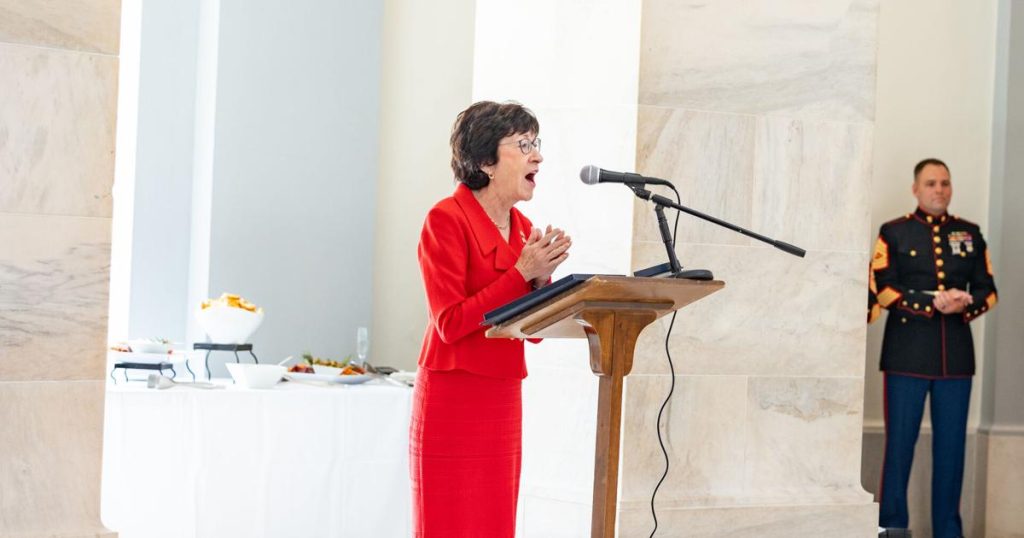(The Center Square) — The U.S. Senate rejected a bid by Maine’s Republican Sen. Susan Collins to hike taxes on the nation’s wealthiest to help bail out cash-strapped rural hospitals that are expected to take a hit from the Grand Old Party’s mega bill.
On Tuesday, Collins led a group of 18 Republican senators, including former Senate Leader Mitch McConnell of Kentucky, in support of her amendment to President Donald Trump’s One Big Beautiful Bill Act to raise taxes on the ultra-wealthy income earners to help rural hospitals facing steep Medicaid cuts in the spending plan.
Collins’ amendment had called for setting a new tax bracket for individuals who earn more than $25 million in annual income and married couples who earn more than $50 million. Money from the proposed wealth tax would double the size of a rural hospital relief fund in the Senate’s version of the budget reconciliation bill from $25 billion to $50 billion.
“Rural providers, especially our rural hospitals and nursing homes, are under great financial strain right now, with many having recently closed and others being at risk of closing,” Collins said in remarks on the Senate floor ahead the vote. “This amendment would help keep them open and caring for those who live in rural communities.”
But the amendment failed on a vote of 22 to 78, with a handful of Democrats and 17 other Republicans joining Collins and supporting it. Collins also voted to waive a point-of-order objection against her proposal.
Trump recently suggested that he would be open to raising taxes on the nation’s richest individuals in his bill to extend 2017 tax breaks to offset cuts for middle- and working-class families.
“I would love to do that, frankly,” Trump told reporters.
But backers of the amendment said the intent of the measure was to provide more financial support for rural hospitals and community centers that are expected to see major reductions in Medicaid funding under the budget bill.
Besides imposing work requirements for “able-bodied” Medicaid recipients, Republican lawmakers have included provisions in the spending bill to crack down on the health care provider tax that states charge health care providers to help fund the program, particularly in rural areas. Conservative lawmakers say the Medicaid provider taxes amount to a “money laundering” scheme by states that fleece taxpayers.
But lawmakers on both sides of the political aisle have raised alarms about the impact of proposed Medicaid reductions on rural hospitals, which were already struggling financially amid razor-thin operating margins.
Rural hospitals stand to lose 21 cents out of every dollar they receive in Medicaid funding under the bill, according to a recent report by the Rural Health Association and Manatt Health. Total cuts in Medicaid reimbursement for rural hospitals over the ten-year period could reach nearly $70 billion under Trump’s bill, the report’s authors said.
Meanwhile, more than 330 rural hospitals — including at least two in Maine — face closure under the bill, according to a report by the Cecil G. Sheps Center for Health Services Research at the University of North Carolina, which Democratic lawmakers commissioned.


